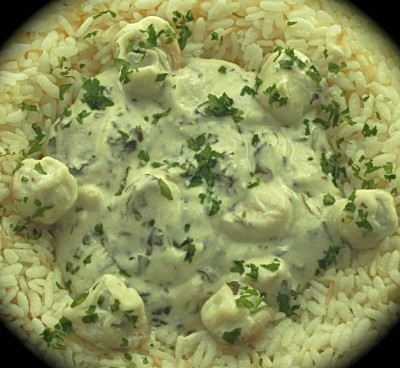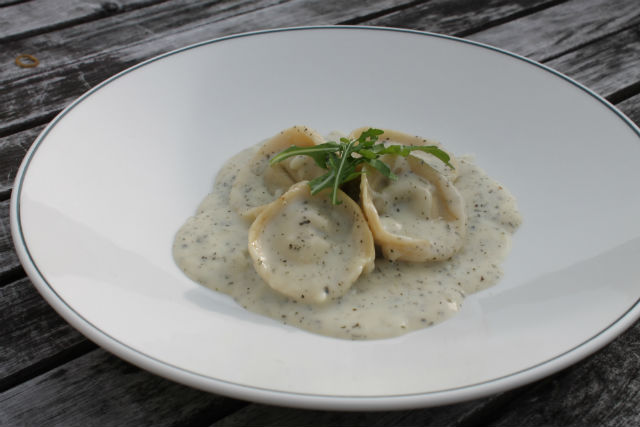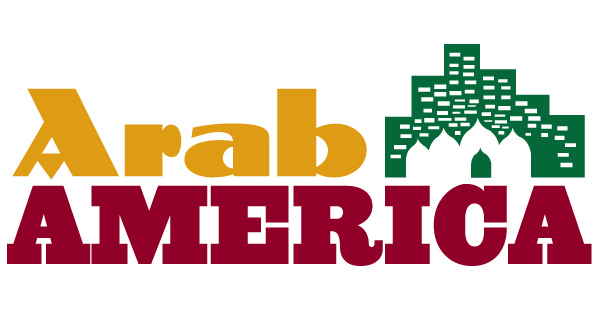Düşbərə
chuchvara, joshpara, chüchüre, chüchpara, düshbärä, dushbara, dyushbara, shishbarak, shushbarak, tatarbari, tushbera, tushpara
Joshpara is a kind of dumpling popular in Central Asia, South Caucasus and the Middle East. They are made of unleavened wheat dough squares filled with ground meat and condiments. Josh means "to boil" while para is a term for "bit" in early Persian. This word was commonly used prior to the 10th century, when it was replaced by the modern Persian name gosh e-barreh, meaning "lamb's ear". There are several variations of the name in other languages including Azerbaijani , Bashkir (сөсбәрә, süsbərə) Kazakh (тұшпара, tushpara), Kyrgyz (чүчпара, chuchpara), Tajik (тушбера, tushbera), Uzbek (chuchvara) and Uyghur (چۆچۈرە, chöchürä). The Arabic word shishbarak (Arabic: شيشبرك) or shushbarak (Arabic: شُشْبَرَك) is thought to be derived from joshpara in pre-Islamic times. Another theory about the words' etymology is that the word comes from the Turkic word düşbərə. The words tosh and dash mean "filled up" and "spill out", and berek means "food" (dishes made from dough). This alludes to the fact that düşbərə should be added in when the water is boiling and spilling out of the saucepan.
Source: Wikipedia
Recipes











